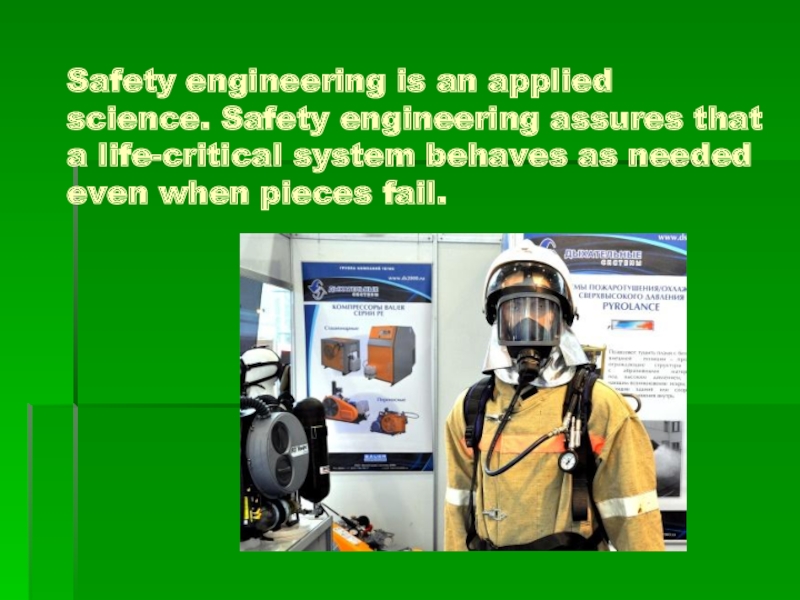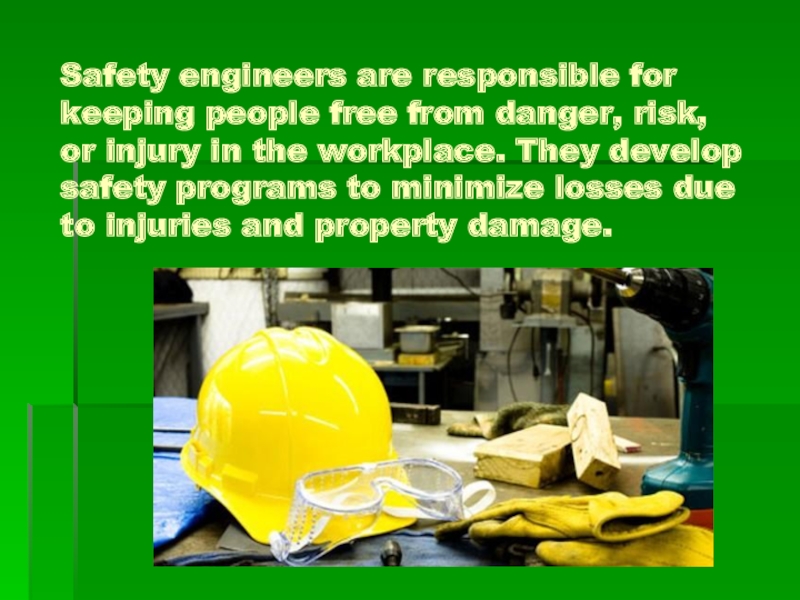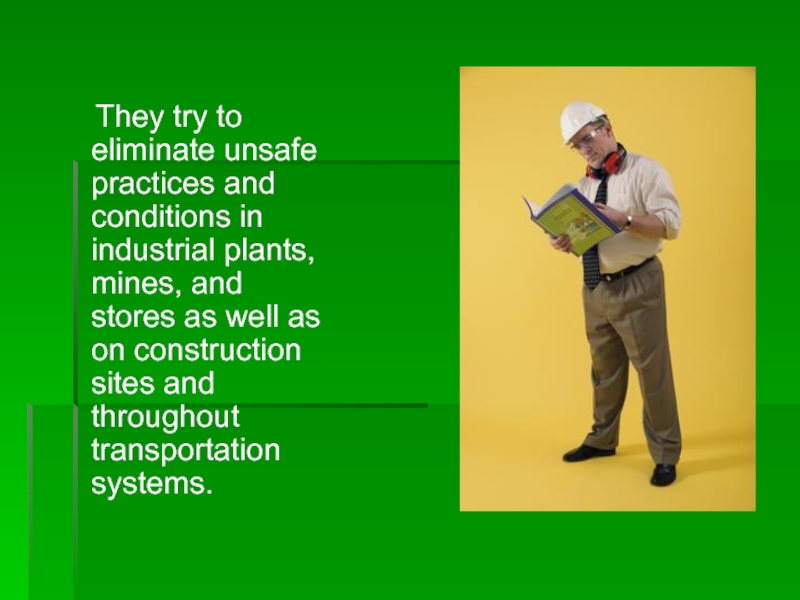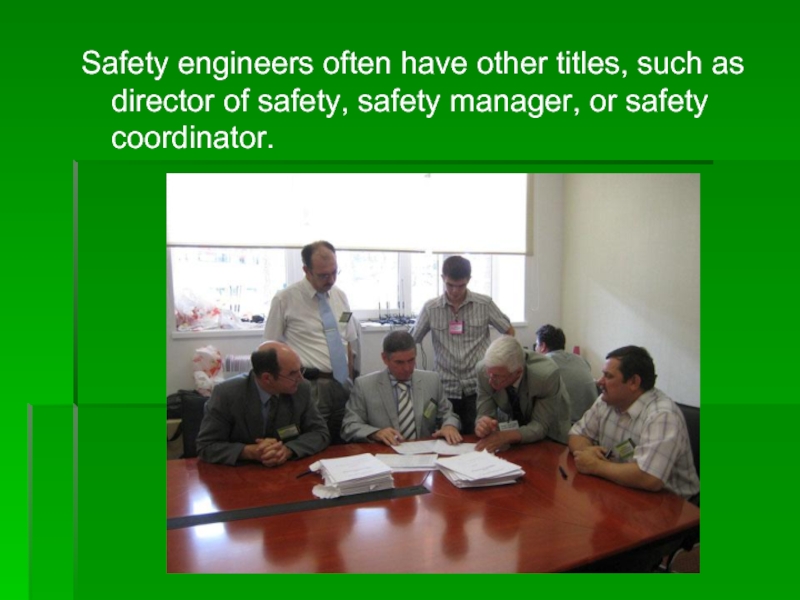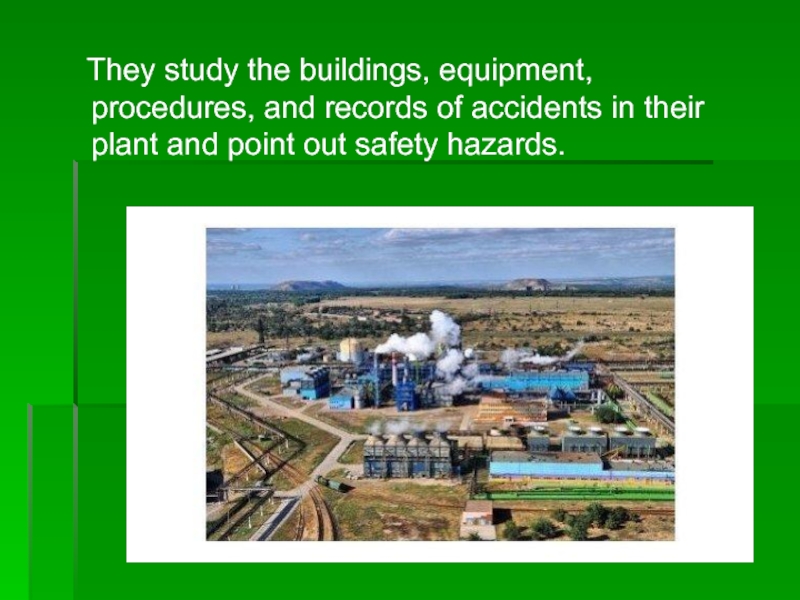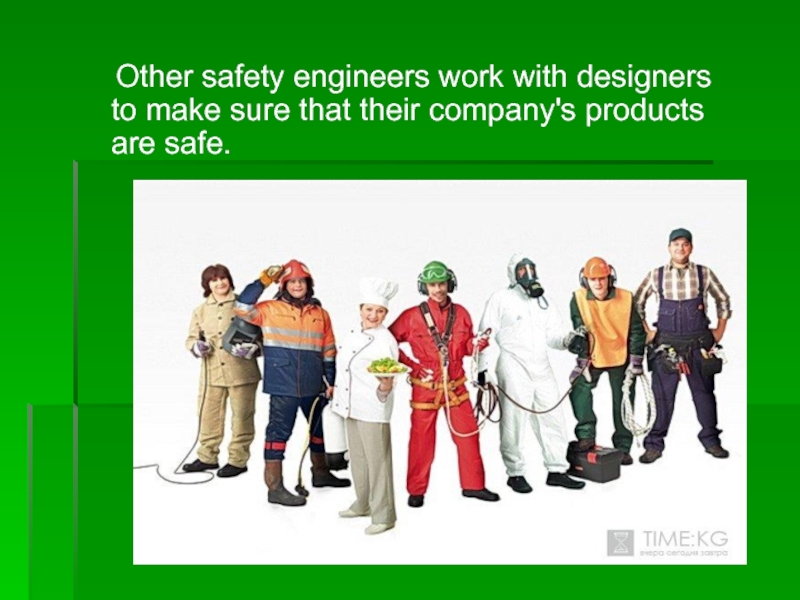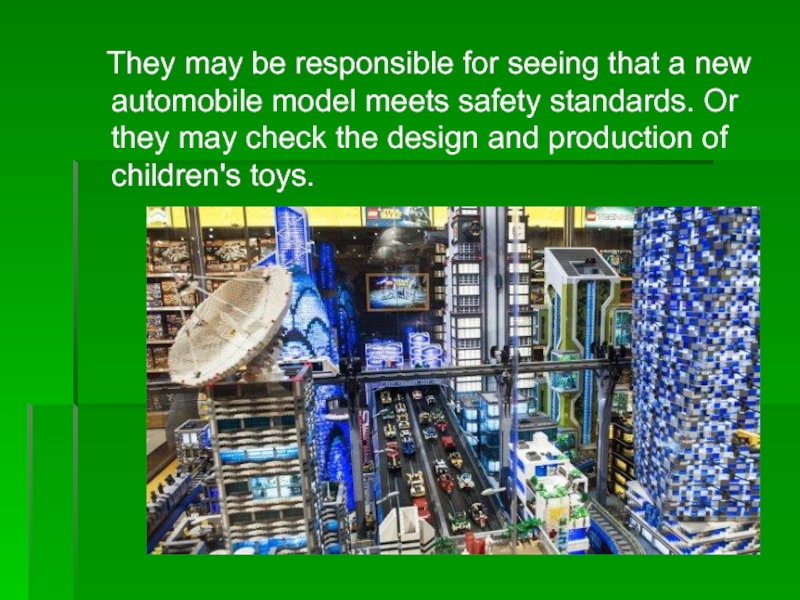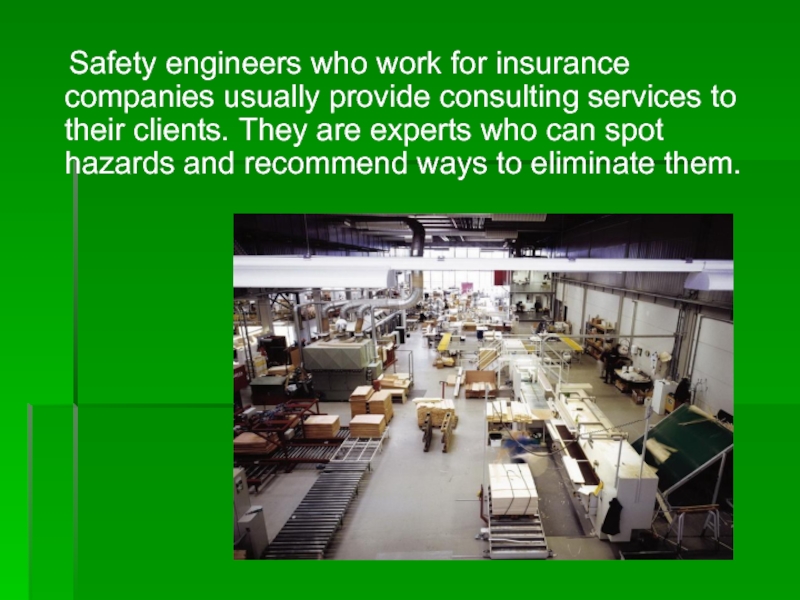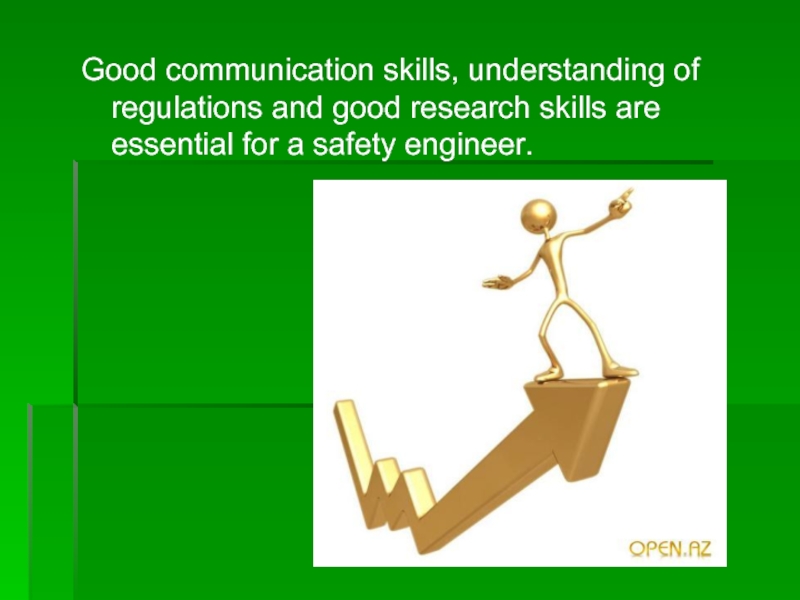- Главная
- Разное
- Дизайн
- Бизнес и предпринимательство
- Аналитика
- Образование
- Развлечения
- Красота и здоровье
- Финансы
- Государство
- Путешествия
- Спорт
- Недвижимость
- Армия
- Графика
- Культурология
- Еда и кулинария
- Лингвистика
- Английский язык
- Астрономия
- Алгебра
- Биология
- География
- Детские презентации
- Информатика
- История
- Литература
- Маркетинг
- Математика
- Медицина
- Менеджмент
- Музыка
- МХК
- Немецкий язык
- ОБЖ
- Обществознание
- Окружающий мир
- Педагогика
- Русский язык
- Технология
- Физика
- Философия
- Химия
- Шаблоны, картинки для презентаций
- Экология
- Экономика
- Юриспруденция
My future speciality презентация
Содержание
- 1. My future speciality
- 2. Safety engineering is an applied science. Safety
- 3. Safety engineers are responsible for keeping people
- 4. They try to eliminate unsafe
- 5. Safety engineers often have other titles, such
- 6. Engineers employed in large manufacturing plants often develop broad safety programs.
- 7. They study the buildings, equipment,
- 8. Other safety engineers work with
- 9. They may be responsible for
- 10. Safety engineers who work for
- 11. Good communication skills, understanding of regulations and
- 12. Thanck you for attention !
Слайд 2Safety engineering is an applied science. Safety engineering assures that a
life-critical system behaves as needed even when pieces fail.
Слайд 3Safety engineers are responsible for keeping people free from danger, risk,
or injury in the workplace. They develop safety programs to minimize losses due to injuries and property damage.
Слайд 4 They try to eliminate unsafe practices and conditions in
industrial plants, mines, and stores as well as on construction sites and throughout transportation systems.
Слайд 5Safety engineers often have other titles, such as director of safety,
safety manager, or safety coordinator.
Слайд 7 They study the buildings, equipment, procedures, and records of
accidents in their plant and point out safety hazards.
Слайд 8 Other safety engineers work with designers to make sure
that their company's products are safe.
Слайд 9 They may be responsible for seeing that a new
automobile model meets safety standards. Or they may check the design and production of children's toys.
Слайд 10 Safety engineers who work for insurance companies usually provide
consulting services to their clients. They are experts who can spot hazards and recommend ways to eliminate them.
Слайд 11Good communication skills, understanding of regulations and good research skills are
essential for a safety engineer.

